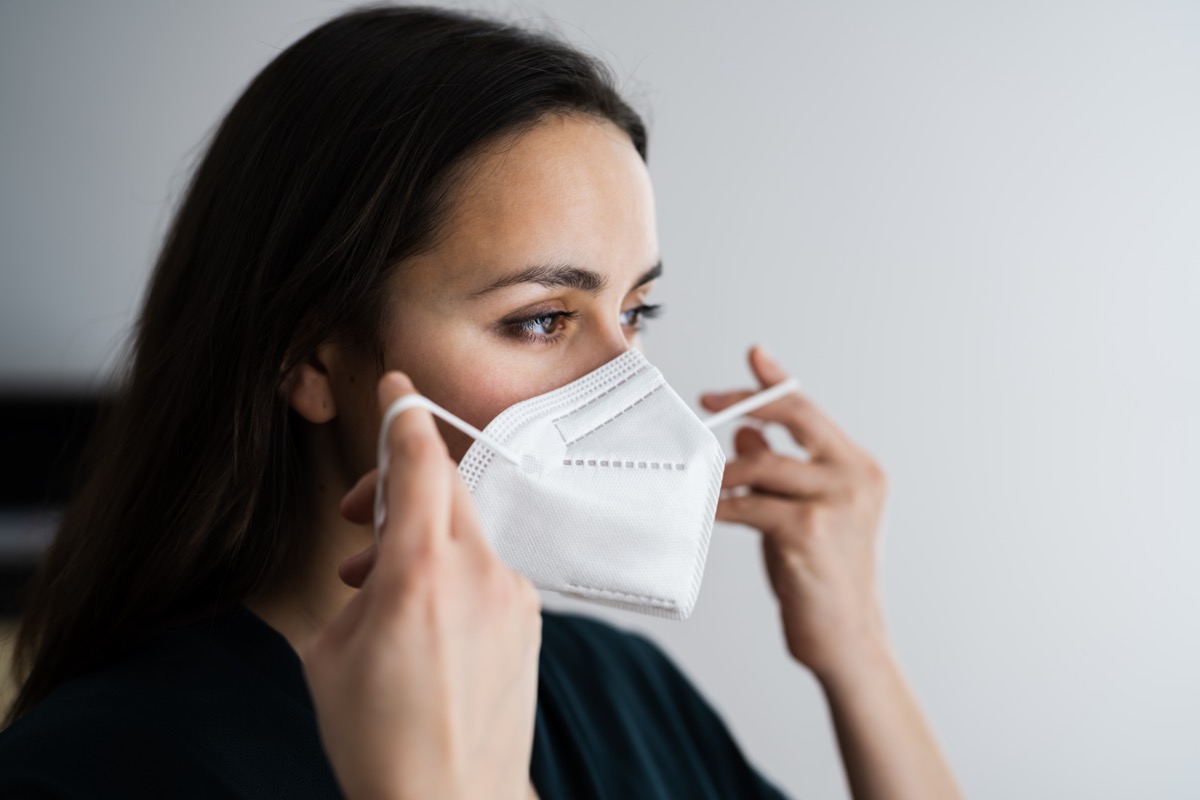More than two years into the pandemic, the phenomenon known as "long COVID" continues to be somewhat mysterious to health experts. Up to 30% of people who contract the coronavirus may end up with lingering symptoms that last for weeks or months after their initial infection. The causes aren't understood, although research continues to provide small pieces of the puzzle, as it did this week, with a study that indicates one condition may increase your risk. Read on to find out more—and to ensure your health and the health of others, don't miss these Sure Signs You've Already Had COVID.
According to a new analysis of studies, having diabetes may increase your risk of long COVID.
That's the conclusion of a group of researchers who presented their findings this week at the Scientific Sessions of the American Diabetes Association.
The scientists looked at seven studies that tracked patients for at least four weeks after they recovered from COVID-19, to analyze who developed common symptoms of long COVID (including such as brain fog, shortness of breath, skin conditions, and depression). Three of the studies found that people with diabetes were up to four times more likely to develop long COVID than people who didn't have diabetes.
Diabetes seems to be "a potent risk factor" for long COVID, said the researchers, who noted that their findings are preliminary—the studies they analyzed used different methods, definitions of long COVID, and observed different severities of initial illness.
"More high-quality studies across multiple populations and settings are needed to determine if diabetes is indeed a risk factor" for long COVID, the scientists said. They urged "careful monitoring" of people with diabetes after a COVID-19 diagnosis.

Long COVID (also known as PASC, for post-acute sequelae of COVID-19) is the umbrella term for a wide range of symptoms that endure for weeks or months after a COVID infection. They include breathing problems, fatigue, and neurological issues like brain fog and can vary in severity from inconvenient to debilitating. The severity of the initial illness seems not to matter—people who had mild cases of COVID-19 have reported long COVID.
The General Accounting Office estimates that between 8 million and 23 million Americans have developed long COVID so far. According to CDC data through November 2021, one in five Americans aged 18 to 64 reported a later health condition that may be attributable to COVID-19. Among adults over 65, the number was one in four.

Follow the fundamentals and help end this pandemic, no matter where you live—get vaccinated ASAP; if you live in an area with low vaccination rates, wear an N95 face mask, don't travel, social distance, avoid large crowds, don't go indoors with people you're not sheltering with (especially in bars), practice good hand hygiene, and to protect your life and the lives of others, don't visit any of these 35 Places You're Most Likely to Catch COVID.
The post This Can Increase Your Risk of "Long COVID," Study Shows appeared first on Eat This Not That.
----------------
By: Michael Martin
Title: This Can Increase Your Risk of "Long COVID," Study Shows
Sourced From: www.eatthis.com/news-this-can-increase-risk-of-long-covid/
Published Date: Thu, 16 Jun 2022 11:46:22 +0000
Read More
 HealthWellnessFitnessBeautyVideosPrivacy PolicyTerms And Conditions
HealthWellnessFitnessBeautyVideosPrivacy PolicyTerms And Conditions
